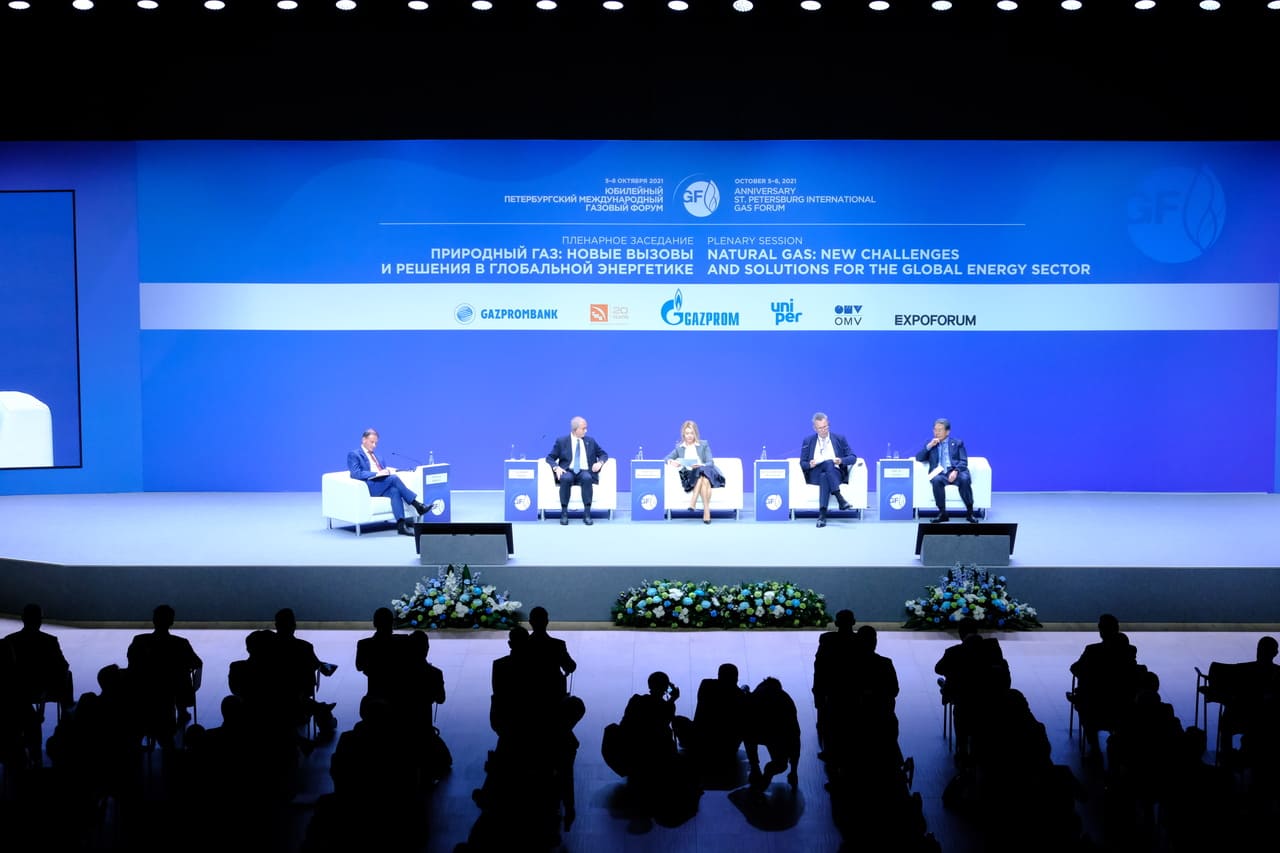
Economic recovery results in gas prices and demand rise in Europe.
Participants of the plenary session NATURAL GAS: NEW CHALLENGES AND SOLUTIONS FOR THE GLOBAL ENERGY SECTOR discussed the situation with gas supplies to Europe and outlined that rising prices for this fuel type makes the situation challenging in the EU, while the demand for the Russian fuel keeps growing.
According to Elena Burmistrova, Deputy Chairman of the Management Committee, Gazprom, the European market suffers from gas deficiency caused by recovery of the overall economy and energy consumption situation. Another factor is European countries being forced to stop using coal for power generation due to emission quotas rising. “One more reason is loss of efficiency at wind and hydro energy facilities,” she added.
All of this resulted in gas prices rocketing at European markets. “Some time ago it would have seemed unimaginable, and yet here we are,” Elena remarks.
According to Alfred Stern, Chairman of the Executive Board, CEO, OMV AG, gas prices haven’t been so high since about 1981. Moreover, he explained that demand growth causes tension on certain markets.
“Today, the European spot market demonstrates high volatility in gas prices, confusing both sellers and buyers, and threatening economy of the entire region with destabilization,” Elena Burmistrova apprehends.
According to her, this situation revealed advantages of long term contracts with the Russian fuel supplier – their partners were delighted to get gas at the prices previously agreed.
Mrs. Burmistrova pointed out that in the recent years, the European Union experts have on many occasions recommended market players to abandon agreements of that kind. Yet, the market had dramatically illustrated that they can be beneficial, she resumed.
The speakers agreed that natural gas is of imminence significance in the energy sector. As explained by Joe M. Kang, President, International Gas Union, natural gas will have a pivotal part in many countries implementing their decarbonization programs. With that, he believes that whatever energy sources are used, a balance is needed.
According to Jean-Marie Dauger, Chairman, World Energy Council, gas should be used as an intermediate fuel while switching to renewable energy sources.
Maarten Wetselaar, Integrated Gas, Renewables and Energy Solutions Director, Member of the Executive Committee, Royal Dutch Shell plc, specified that oil and gas are going to have critical role in the energy sector, and gas is expected to have more advantages.
Klaus-Dieter Maubach, Chief Executive Officer, Uniper SE, agreed with Mr. Wetselaar on that one. He pointed out that Asian countries will be the ones admittedly requiring gas for the longest term in the future.